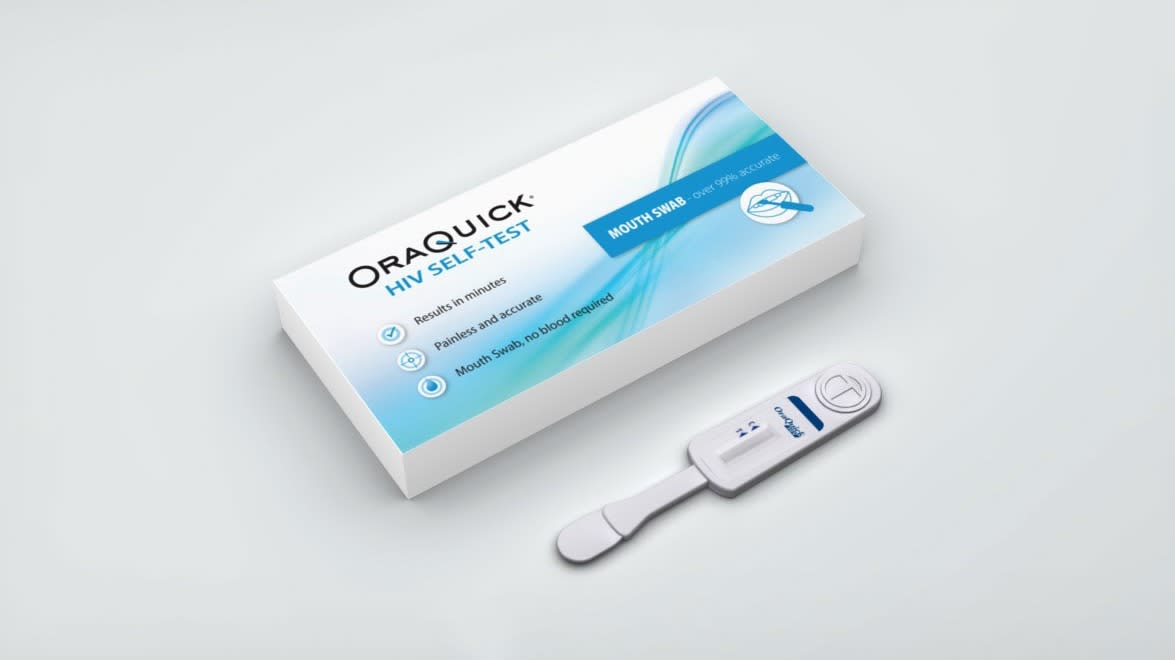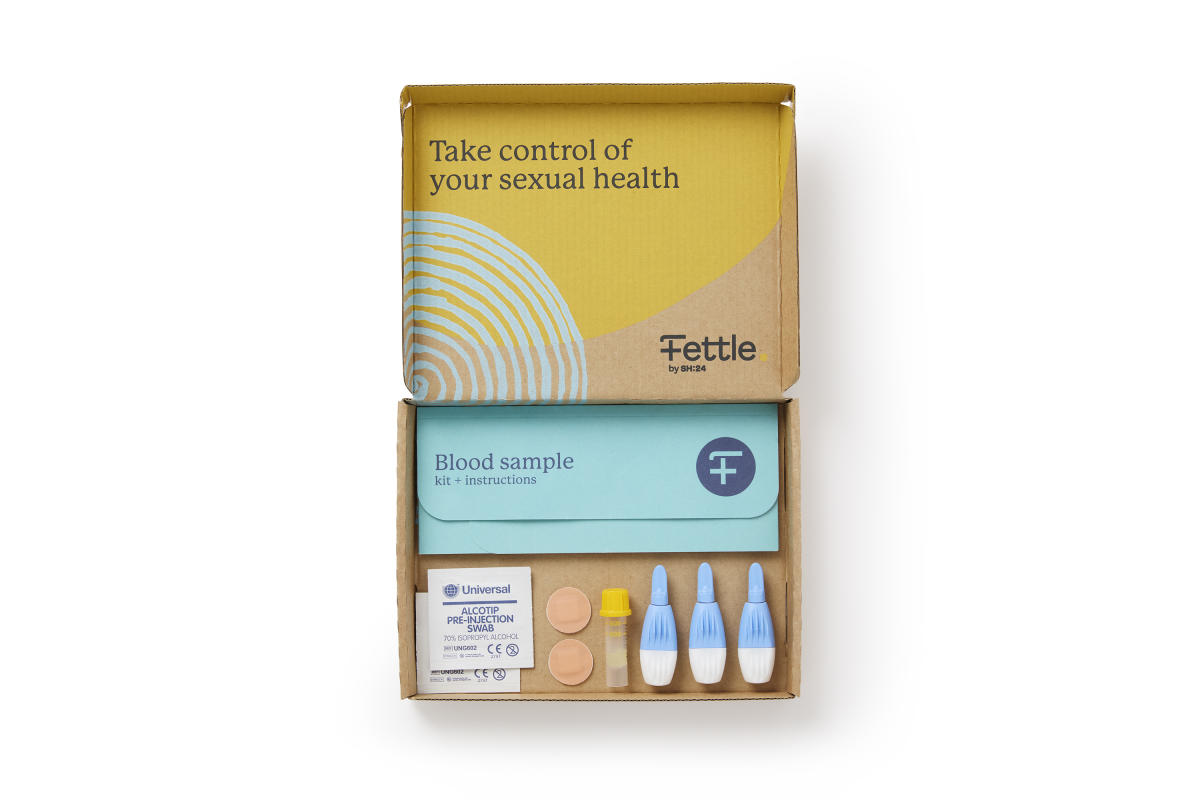At home HIV test kits
We offer safe and confidential home HIV test kits, with experts on hand to help you understand your results.
Choose your HIV test
We offer lab or home testing for HIV. Find out how each test works below.
How do home HIV tests work?
We offer 3 options for HIV testing. The Insti HIV test and OraQuick test give faster results, but some people prefer to have their results checked by a lab.

Lab test
For this HIV test, wait 7 weeks after unprotected sex for the most accurate results.
Use the small lancet to prick your finger and collect about 16 drops of blood (0.8ml). Send your sample to our lab using the prepaid return package for results in 72 hours.
All our lab blood tests can be done with the same blood sample. So you can easily test for HIV, syphilis, hepatitis B and C with just 1 finger-prick blood sample.

Insti HIV test
For this test, wait 12 weeks after unprotected sex for the most accurate results.
Prick your finger with a small lancet to collect one drop of blood. Using a testing solution, you’ll see your results within a few minutes.
OraQuick test

For this test, wait 12 weeks after unprotected sex for the most accurate results.
This HIV test does not need any blood sample. You can quickly get results after swabbing the inside of your mouth.
HIV: the basics
When to test for HIV
HIV can take some weeks to show up in a test from the time of infection. This is known as a ‘window period.'
For the lab test, wait 7 weeks (45 days) before testing
For the Insti test, wait 3 to 12 weeks (21-84 days) before testing
For the OraQuick test, wait 90 days before testing
If you’re not sure when you might have been exposed to HIV, do a test now and another after the window period. Our clinicians can help you work out when to test again.
Symptoms of HIV
HIV can cause flu-like symptoms a few weeks after infection. After this, people living with HIV may live symptom free for years. As HIV develops, the immune system becomes weaker. This can become serious, making it hard to fight common infections.
People living with HIV are more likely to develop some cancers. In its final stage, HIV infection will develop into AIDS. Common infections could become fatal, as the body is too weak to fight them off.
Choosing an HIV test kit
The Insti test gives you results in a few minutes and only uses 1 drop of blood. However, the window period is longer (12 weeks) and you need to be comfortable doing the test and reading the results. You might want the support of a friend or family member when you do the test, or be happy to do it by yourself.
The lab test is processed in a lab. It does need a bit more blood for the sample (16 drops) but the window period is shorter (7 weeks). It's a good option if you do not feel comfortable processing and reading the result.
The OraQuick test does not need any blood. You can test at home by running a swab around your gums. Results are ready in 20 minutes. The OraQuick has a longer window period of 12 weeks.
Whichever test you choose, our clinical team will be on hand with help and support. Reply to any text message from Fettle to get in touch.
Understanding HIV results
Our HIV lab tests check for HIV antibodies. You’ll get a negative result or a reactive result.
A negative result means you do not have HIV.
Reactive means that you may have the infection. But is it not the same as a positive result. We need to confirm the diagnosis with another test, done at a clinic. If your result is reactive, one of our clinicians will call you to explain the next steps and help arrange a test.
This is a normal part of HIV testing, whether you test at home or in a clinic. And many reactive results turn out to be negative.
Treatment for HIV
Modern treatment options mean most people living with HIV have a long and healthy life. Most treatments involve antiviral medications. These don’t cure HIV but can reduce the level of virus in your blood to ‘undetectable’ levels.
This means you can’t pass on HIV to other people. HIV treatment works best when it's started straight after diagnosis.
Do you need help with something else?
Find your local sexual health clinic.
Find out where you can access medication to reduce your chance of becoming infected with HIV. It must be started within 3 days of exposure.
Medication people at risk of contracting HIV take to prevent getting HIV from sex or injection drug use.
Find out about your emergency contraceptive options.



